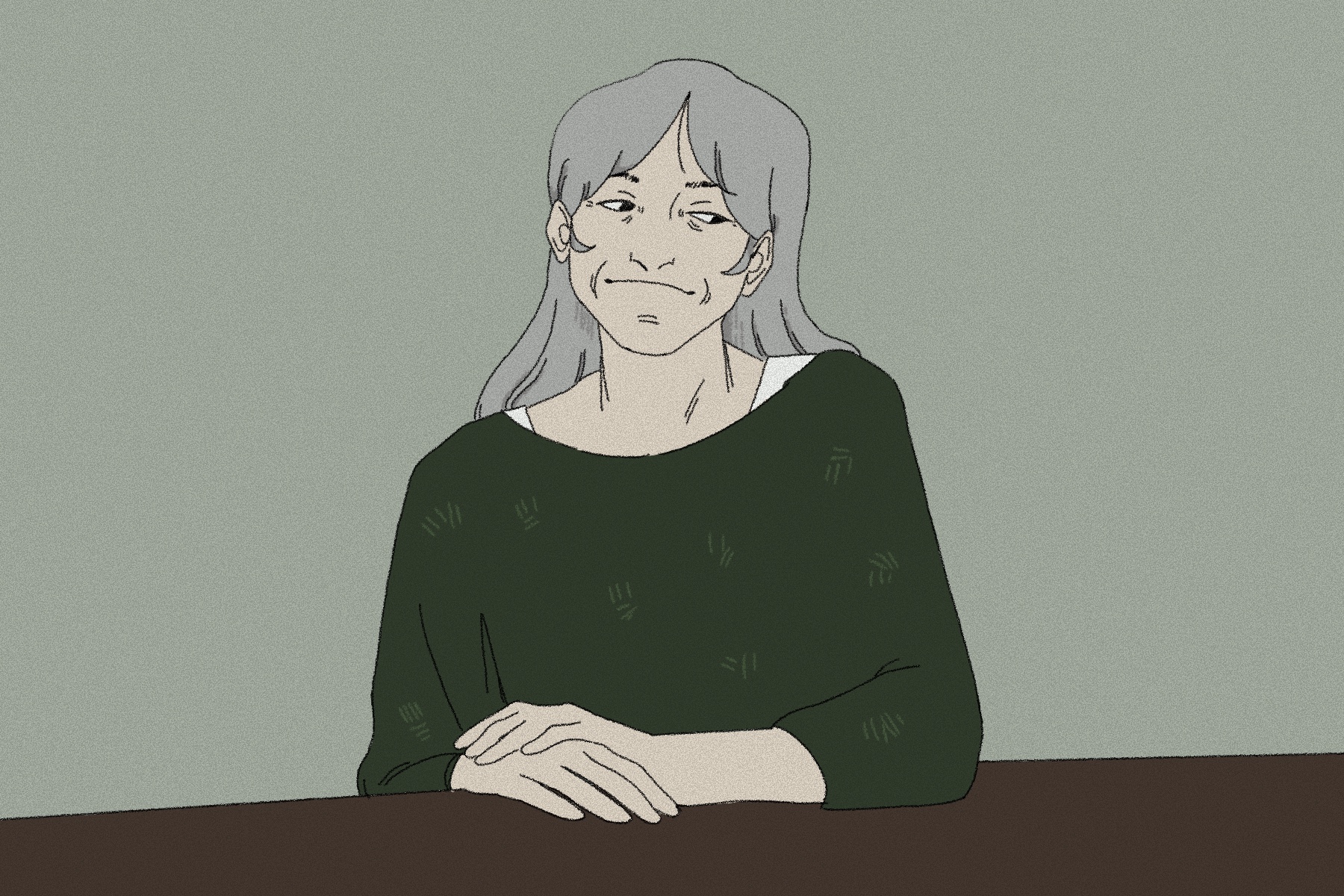You open up TikTok and scroll through your For You Page, observing each video and liking the ones that stood out. Trends fleet through the crowded media landscape, some catching your eye and some barely making it onto your feed. As the videos start to accumulate, you notice something new—an old filter. A filter that projects how old you’ll look in a couple of decades. “OMG. Need to try this.” You notice how some people grimace and manufacture disgusted expressions at their ‘old self.’ Now you have to try it out. You press a button and pull the camera up on your phone. The moment you make eye contact with your reflection, you wince. Is this really how I’ll look? The wrinkles infect your face, white and grey hairs proliferate your hair. You either delete the video or post your reaction, the latter which just adds to the unending waterfall of young people turned old via TikTok filter.
In a moment of self-awareness, you catch yourself becoming a part of the very trend that has mystified and disgusted you. The allure of discovering your aged self is undeniable, but you also recognize the underlying anxiety that simmers beneath the surface. It dawns on you that this fear of aging is deeply rooted in the human psyche, perpetuated by societal standards and media portrayals of youth. From the constant bombardment of anti-aging products to the glorification of youthful beauty in films and advertisements, it seems we are conditioned to dread the passing of time and the changes it brings.
In the face of these fears and anxieties, Shakespeare’s sonnet offers a timeless reminder that beauty, like the transient summer’s day, is subject to change.
Shall I compare thee to a summer’s day?
Thou art more lovely and more temperate:
Rough winds do shake the darling buds of May,
And summer’s lease hath all too short a date;
Sometime too hot the eye of heaven shines,
And often is his gold complexion dimm’d;
And every fair from fair sometime declines,
By chance or nature’s changing course untrimm’d;
But thy eternal summer shall not fade,
Nor lose possession of that fair thou ow’st;
Nor shall death brag thou wander’st in his shade,
When in eternal lines to time thou grow’st:
So long as men can breathe or eyes can see,
So long lives this, and this gives life to thee.
The poem’s enduring existence in the realm of art speaks to the intangible and immortal nature of beauty, etched not only in physical form but also in the stories and experiences that shape one’s life. The tangible, the physical? Beauty is temporary. It has no fixed state. It exists as a testament to the time that has passed. Isn’t there something poetic about time etching lines into skin, writing the story of your life?
Aside from making the whole idea of aging poetic and lovely, who cares? Who cares if it fades? What is so evil about ugliness? It’s no shame to want to take care of yourself or even to want to be beautiful but where is the line?
Where does your desire for beauty cede your fear of the lack of it?
What are these words anyway?
What is fear?
-an unpleasant emotion caused by the belief that someone or something is dangerous, likely to cause pain, or a threat.
What is ugly?
–unpleasant or repulsive, especially in appearance.
What is beauty?
-a combination of qualities, such as shape, color, or form, that pleases the aesthetic senses, especially the sight.
These words all cite the same experience—the experience of pleasure, or the lack thereof. Then is existence just a chase for pleasure, defining all humans as ‘pleasure seekers?’ Inherently, there’s nothing wrong with that. However, does pleasure only lie in the act or state of something being beautiful? Is there no place for pleasure outside of physical beauty?
There’s nothing to fear but yourself. Aging is just a promise—a tangible reward for living. Why would anyone be scared of something so beautiful?
The irony is potent and it’s apparent throughout social media fixations, such as TikTok trends and filters. What’s so shocking about the old filter? Is it because those who use it are part of the younger generation and are simply shocked to see what the future could potentially look like? Is it a deep-rooted prejudice, an underlying fear that their beauty will be stripped away slowly?
In embracing the inevitability of aging, you come to appreciate the beauty of impermanence and the wisdom that accompanies the passing years. Society’s fixation on beauty standards, exacerbated by TikTok trends and filters, reveals the need for a more profound shift in perception. It is time to redefine beauty, celebrating the uniqueness of each individual and embracing the inherent beauty that comes with the passage of time.
Ultimately, the fear of aging and the pursuit of physical beauty are deeply intertwined with the human experience, but they do not define worth or the essence of who you are as an individual. By embracing the beauty of your story, your connections and your capacity to grow and change, you can find solace in the promise of aging—a testament to a life well-lived and the treasure of memories etched into your hearts. So, as you continue scrolling through the digital landscape and beyond, may you remember that true beauty transcends the limitations of the physical, finding its eternal dwelling within the essence of your being.















